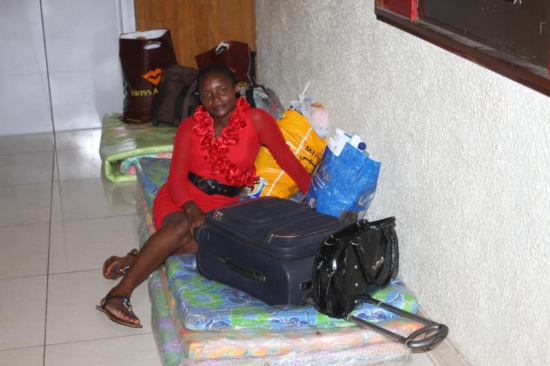×
The Standard e-Paper
Stay Informed, Even Offline

The cooing and gurgling of a baby interrupts the chatter of adults lining the stairway of a building along Nairobi’s Mfangano Street.
Oblivious to her surroundings, the baby playfully tugs at the strings of a beanie on her head and rubs her hands in delight as her father struggles to contain the wriggly bundle.